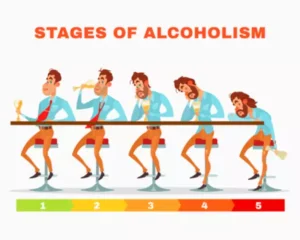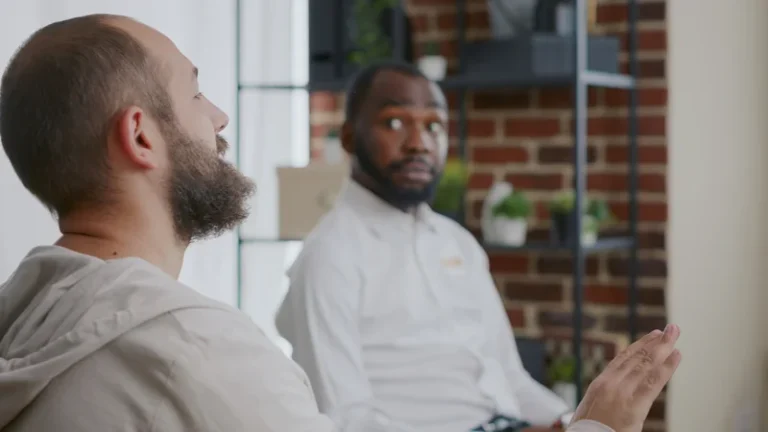

This can lead to misunderstandings, disputes, and a decrease in the quality of one’s interpersonal ties. Dylan Banks offers sharp insights on relationships, love, and human connection. A leading expert, he’s passionate about helping others build meaningful connections. A countryside campus on the Brazos River providing modern-style homes and a focus on full continuum care with detox, residential, and long-term options. Integrating the power of nature and evidence-based care to treat addiction and co-occurring disorders with detox, residential, and outpatient care.
How does alcohol affect a relationship?

They can also recommend treatment programs that may help with detox and recovery. The constant agitation, drowsiness and confusion experienced by those suffering the effects of alcoholism are likely to cause problems for anyone in a relationship with the sufferer. People who find themselves in a romantic relationship with someone struggling with alcoholism may end up making excuses for their lack of attendance or improper drinking ruins relationships conduct at social functions. They may find their options for other social interaction limited, and this may further be compounded by financial troubles or other problems related to the incidence of alcoholism. Heavy alcohol users may have trouble relating to teetotalers or those who do not share their propensity for drinking to excess, and they may attempt to convince friends or loved ones to join them in drinking.

Important note on domestic abuse

While drinking can lead to significant relationship challenges, it often doesn’t happen overnight. For this reason, it can be difficult to understand if and when your drinking has become unhealthy, especially if alcohol has played a role in your relationship for a long time. This uncertainty is sometimes described as a phenomenon known as “gray area drinking“. Below we discuss how alcohol can disrupt your most important relationships. We also draw attention to some red flags that your drinking may have become unhealthy, and provide next steps for making a change. The National Institute on Alcohol Abuse and Alcoholism is a government organization that provides lots of background information and links to resources for people with alcohol addictions and their loved ones.
- The good news is, once you acknowledge that your drinking has become unhealthy, you can take steps to repair and heal from the role alcohol played in a relationship.
- If you think your partner has an alcohol addiction, you might feel the need to speak with them about it but don’t know where to start.
- If you’ve begun hiding how much and how frequently you drink from your partner, drinking has become a significant aspect of your relationship.
- Many people who live with addiction, whether to alcohol or another substance or activity, carry a heavy sense of shame and guilt.
- And just imagine how nice it would be to never have to live through another hangover.
- One-liners like “I’m driving,” “No, thanks, I just finished one,” and “I’ve had my limit for tonight,” can help you avoid giving in to the pressure to drink when you’re trying to cut back.
Communication, Relationships

If addiction is at the root of your relationship issues, treatment can help. Treatment options include inpatient rehab, therapy, support groups, and more. Most alcohol addiction treatment programs offer family therapy or couples counseling, where you learn how to work through problems and rebuild your relationships. Be honest with your partner about your drinking concerns and get the professional support you need. This is because drinking alcohol can provide a short-term boost in dopamine, known as the “happiness hormone.” However, this dopamine-induced euphoria is fleeting. Once the initial effects of alcohol wear off, it’s common to experience heightened depression, anxiety, and even anger and volatility.
- Establish limits around alcohol consumption, behavior, and the impact it has on the relationship.
- In dating and marriage, we share experiences, friends, and social events with our significant others.
- She has worked in behavioral health since graduating with her bachelor’s degree in 2019.
- Additionally, she is trained in Brainspotting, offering a unique approach to trauma-informed care.
- Or do you feel like you can’t seem to have a single good day anymore, no matter how hard you try?
- Reaching out to support groups, seeking educational resources, and talking to a mental health professional can all be beneficial if you have a loved one who has an alcohol use problem.
- You may not even realize that your loved ones are incurring the consequences of your drinking until it’s too late.
- Alcohol use disorder (AUD) is a common addiction, affecting nearly 15 million adults in the United States.
- And when you’re the one with a drinking problem, it can be tough to recognize the harm you’re causing and make a change.
- If she weren’t excelling in her current role, Christy would likely champion environmental activism, advocating for nature’s preservation.
- Although ditching old routines such as drinks after work or get-togethers with alcohol is a step in the right direction, you also need to develop new habits.
- Up and down, up and down; life became a rollercoaster of emotional ineptitude, pinned together by an increasingly weak sense of who I was and where I was heading.
- Living with a partner whose drinking has spiraled out of control can evoke strong emotions and strain the foundation of a relationship.
And when they’re home, they might choose to drink instead of being present with their loved ones. Sometimes, a codependent relationship can grow between a person with an alcohol use problem and their partner. For instance, a codependent spouse may look to the drinker for constant validation, become overly involved in the person’s emotions, and try to “fix” them. If someone in a relationship has a drinking problem, it can leave the other person feeling disconnected and distant from their partner. And even if both parties drink together, they might only feel a sense of connection while the alcohol is involved. This can lead to reduced intimacy and a disconnect in the relationship as a whole.
Support Groups for Families of Alcoholics

